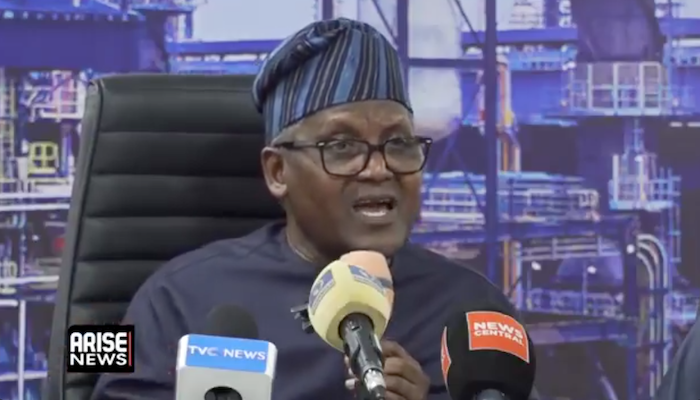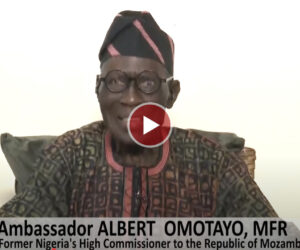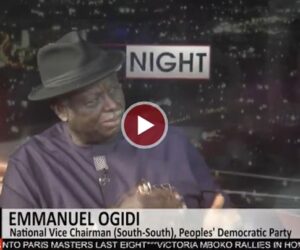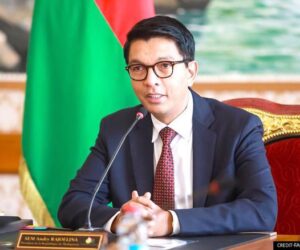The President of Dangote Group, Aliko Dangote, has dismissed suggestions that his companies seek to monopolise Nigeria’s energy market, insisting instead that the conglomerate is setting the pace for industrial growth while encouraging others to join the sector.
Speaking at the Dangote Refinery recently, during an event to mark one year of petrol production, Dangote said Nigeria must embrace large-scale investment in refining to ease the burden of fuel imports and strengthen its foreign exchange position. He revealed that the country could earn nearly $500 million annually from cement exports alone, adding that similar benefits would flow from energy if more players invested in the downstream sector just like the case with cement.
“We’re Pacesetters…we don’t want to also be a monopoly. We want other players in the business,” Dangote stated. “But you cannot come to a soccer field and you want to play cricket—you will wound somebody. If they want to play, let them come and play soccer, so we can all follow the same rules of the game.”
Dangote argued that critics of his refinery operations often overlook the fact that no other investor is being prevented from building refineries. According to him, over 30 licences have been issued to prospective operators.
“The best option that I believe, if people now really want this market open, is to encourage – not only us – is to encourage everybody. We did not stop anybody. So those people who are making noise, they should also go and put up plants. Once they put up plants, then Nigeria will become the biggest hub.”
He noted that Nigeria is already a supplier of gasoline to Europe and the United States, exporting between 1.6 and 1.8 billion litres of gasoline between June and September this year alone. Despite this, he maintained that domestic supply remains a priority.
Looking ahead, the billionaire projected that by next year Nigeria would be the largest exporter of polypropylene in Africa, while the Dangote Group aims to become the world’s biggest producer of urea fertiliser. He framed these ambitions as part of a wider national agenda to create jobs, stabilise the economy, and reduce poverty.
Melissa Enoch
Follow us on:








